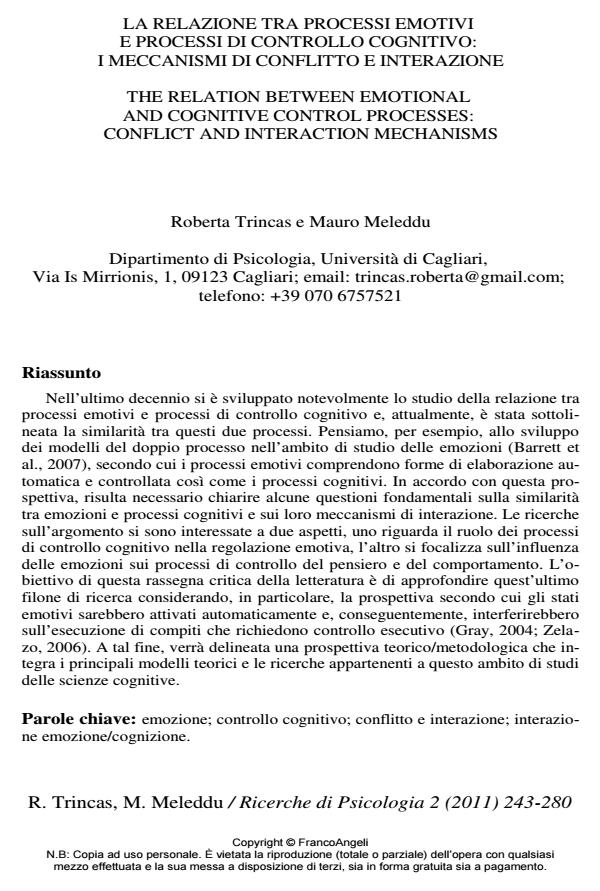The relation between emotional and cognitive control processes: conflict and interaction mechanisms
Journal title RICERCHE DI PSICOLOGIA
Author/s Roberta Trincas, Mauro Meleddu
Publishing Year 2012 Issue 2011/2
Language Italian Pages 38 P. 243-280 File size 227 KB
DOI 10.3280/RIP2011-002005
DOI is like a bar code for intellectual property: to have more infomation
click here
Below, you can see the article first page
If you want to buy this article in PDF format, you can do it, following the instructions to buy download credits

FrancoAngeli is member of Publishers International Linking Association, Inc (PILA), a not-for-profit association which run the CrossRef service enabling links to and from online scholarly content.
In the last decade, research on the relationship between emotional and cognitive control processes is largely grown, and from a theoretical point of view the similarity between such processes has been highlighted. For example, according to the Dual-Process model (Barrett et al., 2007), emotions also are characterized by automatic and controlled processing. In accord to this perspective, it is necessary to claim the basic topics on the similarity and interaction mechanisms between emotion and cognitive processes. Research has mainly focused on two topics: the role of cognitive control in emotional regulation, and the affective influences on executive functions. The aim of this review is to contribute to deepen our knowledge in this field by critically analyzing studies related to the latter domain. In accord to a central perspective emotional states are automatically activated, and consequently they interfere on performance in attentive and control tasks (Gray, 2004; Zelazo, 2006). To this aim, a theoretical and methodological perspective has been defined. This perspective involves main theoretical models and researches part of this frame of studies in cognitive sciences.
Keywords: Emotion; cognitive control; conflict and interaction; emotion/cognition interaction.
Roberta Trincas, Mauro Meleddu, La relazione tra processi emotivi e processi di controllo cognitivo: i meccanismi di conflitto e interazione in "RICERCHE DI PSICOLOGIA " 2/2011, pp 243-280, DOI: 10.3280/RIP2011-002005